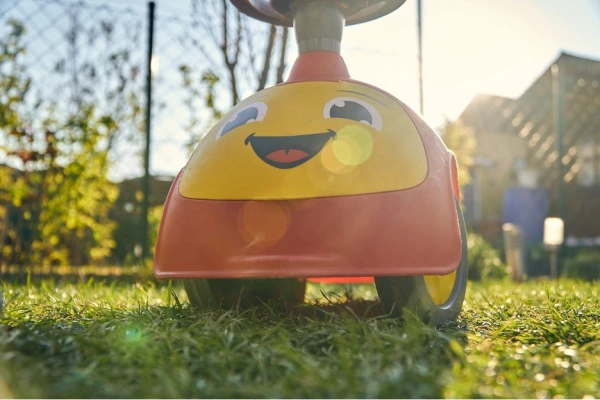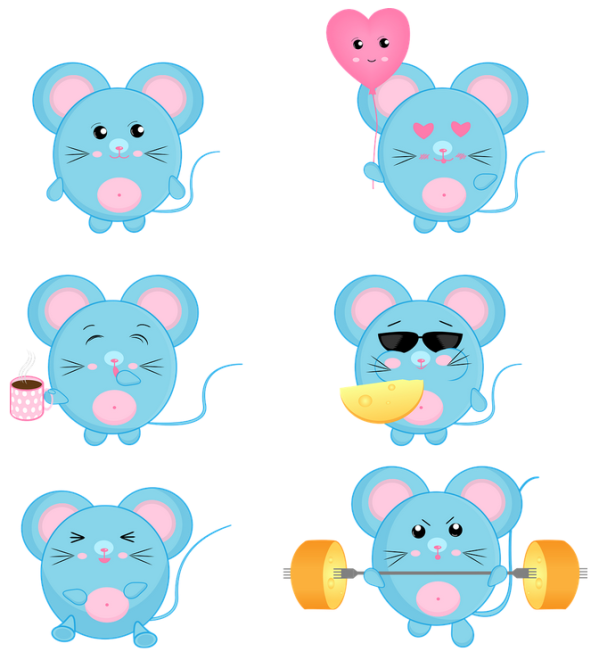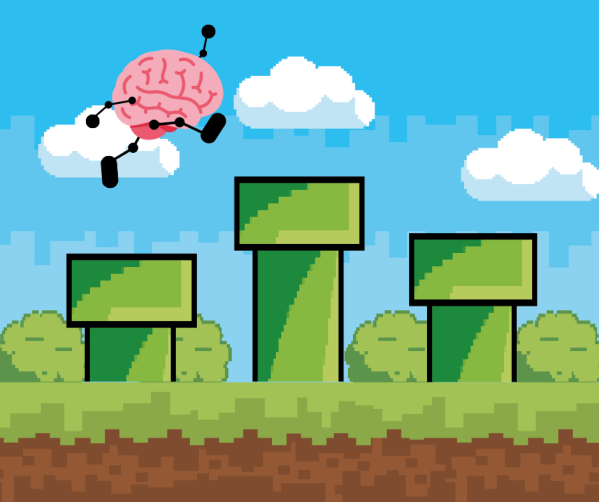What can we discover from this clever creature whose smarts are nothing like ours?
Your brain on Ozempic
We’ve all likely heard of the “weight loss” drug Ozempic, but what does it do to the brain?
Object anthropomorphism: Walking a day in someone else’s wheels
Across ages and cultures, we tuck in teddy bears and put googly eyes on roombas. Where does the urge to empathize with our belongings come from?
Advertising to the brain: The basics and ethics of neuromarketing
An increasing number of marketing companies are using our brain activity to decide how to advertise to us, an approach called neuromarketing. How does neuromarketing work and how can we protect ourselves from the abuse of it?
2023 Neuroscience Year in Review
Our writers share what got them excited about neuroscience in 2023.
Tiny faces, big expressions: Reading rodent faces
How can you tell what a mouse is feeling? New methods give neuroscientists some clues.
Exergames: The video games that won’t “rot” kids’ brains
Combining the benefits of fitness and cognitive training games to help kids succeed in the classroom.
Neuro MythBusters: The truth behind 10 common myths about your brain
Several myths about the brain are so popular that you might not realize they’re false. We’ll break down what these myths claim, where they came from, and whether there’s any truth behind them.
What do our pets really think about us?
Anyone who has pets will understand the strong bonds we feel towards them. But can our pets really understand this feeling, and how do they feel about us?
Mighty microbes: The gut-brain axis and the motivation to exercise
The bacteria in your gut may be helping move more than your bowels– they can actually improve your overall health! Read about how a healthy balance of microbes in the gut can improve motivation to exercise
10 Big Unanswered Questions in Neuroscience (Part Two)
We are back this week with Part Two in our series on some of the biggest (and often surprisingly) unanswered questions in neuroscience!
Can fungus turn ants into zombies?
A parasitic fungus infects ants and manipulates their behavior. What’s happening behind the scenes?
10 Big Unanswered Questions in Neuroscience (Part One)
Now that we’ve peered into distant galaxies and put a man on the moon, the true final frontier may be our very own brains!
Can a racing heart lead to a racing mind?
In a recent study, neuroscientists found that the physical sensation of a rapidly beating heart is enough to cause anxiety.
Don’t move a muscle
Our body’s built-in brakes keep us safely still even while our brains remain active during REM sleep.
The lonely brain: The neuroscience of social isolation
The COVID-19 lockdown resulted in an abrupt, unprecedented social isolation. How do our brains react to social isolation? What do we know about the neuroscience behind social isolation and loneliness?
How did the chicken cross the road?
There’s a reason chickens have their unique strut. The “bob” of a chicken’s head as it walks allows it to see, and is enabled by some amazing neural systems.
The role of early life trauma in binge eating
Trauma puts individuals at higher risk for developing an eating disorder. But what’s happening in the brain to cause it?
The case for turning up the bass
Music is more than just hearing sound; it’s also feeling it. Scientists have shown that feeling the bass makes music more enjoyable and causes people to dance more.
When did you become you?
We all have something about us that makes us unique. Find out how scientists are using fish to uncover when in life this individuality emerges.
Sex differences in pain
Do males and females experience physical pain differently?
2022 Neuroscience Year in Review
Read about what excited our writers about neuroscience this year.
Why do we get the hiccups?
… and other brain reflexes that we may have inherited from our distant ancestors.
Octopus: the animal that keeps itself company
The fox’s nine tails and the cat’s nine lives are mythical. What about the octopus’s nine brains?
What we can learn from the fly on the wall
They might be small, but fruit fly research has led to wide-reaching discoveries in science and six Nobel Prizes!
What’s going on in an axolotl brain?
A recent study genetically sequenced the axolotl brain to understand how they can regenerate parts of their brain!
Your little brain loves to socialize
The cerebellum (Latin for “little brain”) plays a bigger role in our ability to socialize than you might think!
Are people who stutter really tongue-tied?
The exact cause of stuttering remains unknown, but it is probably the result of changes in certain brain structures.
Dopamine: More than just reward
How our brain signals when rewards differ from what we expect
Your body, your brain, and a continuum of arousal states
How the environment shapes our physical and cognitive experience





























